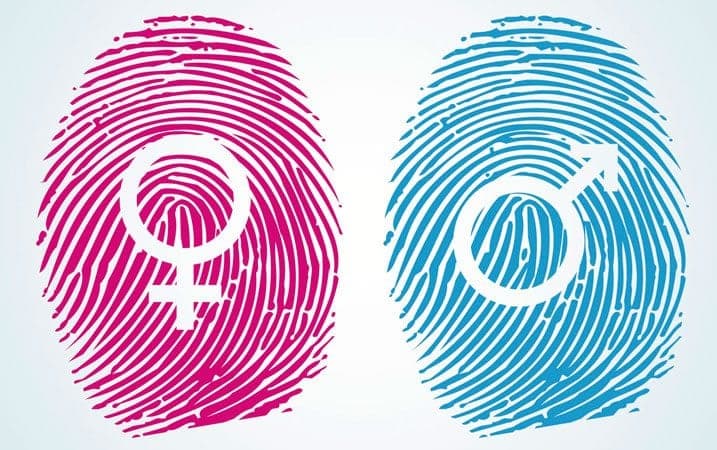A controversy erupted last week in Alberta, Canada, where the provincial government issued new guidelines for schools on sexual orientation and gender identity. The gist is to allow students to decide their own gender and to be treated accordingly, from which sports teams they can join to which bathrooms they can use.
Because Catholic schools in Canada are publicly funded, the measures apply to them, too. Arguably they’re directed at Catholic schools, since it was a controversy last year in Edmonton involving a seven-year-old transgender student’s request to use the girl’s washroom at her Catholic elementary school that pushed the issue into the spotlight.
In response, Bishop Fred Henry of Calgary described the new guidelines as “totalitarian” and “anti-Catholic.”
Henry argued that Catholic schools must indeed respect diversity, but they must also uphold God’s plan for men and women to “respect and accept their sexual identity.”
His Jan. 13 blog post on the subject was recently sent out to parents of children in Catholic schools in Alberta along with a copy of the guidelines. When several parents objected, calling the letter “homophobic” and “hate-filled”, some trustees of the Catholic school system apologized, and one posted her own blog calling the bishop “uninformed.”
That statement, in turn, led a priest at a local Catholic college to fire back, accusing Henry’s critics of Nazi-esque tactics.
“According to the new government regulations for ‘Best Practices,’ there is only one English that can be acceptable: the bizarre right-speak (the Nazi term was gleichschaltung) of graduate students and their faculty advisors in the Department of Eugenics … er … Racial Anthropology … er … Gender Diversity,” wrote the Rev. Stefano Penna of Newman Theological College in Edmonton.
All this, of course, is the usual dynamic of any new front in the wars of culture. No matter what the issues are, before long each side will accuse the other of being Nazi thugs, politically correct bullies, homophobes, or some other awful thing.
What the hot-blooded language tends to obscure is that the issues involved in the Alberta dispute are fairly complicated.
Public funding and Catholic identity: When Catholic institutions take public money, they have to accept a degree of government oversight and control. Yet the state invests in Catholic education because it believes there’s a value to having distinctive educational options available to its citizens, so it’s also obliged to respect the religious identity of those schools.
Protection versus promotion: There’s an ugly history of young people who are different being bullied and terrorized, and the state has a legitimate interest in protecting their rights. Yet protection can shade off into promotion, especially among impressionable youth. At issue in Alberta is whether the new guidelines are truly neutral, or if they endorse one set of values and lifestyle choices over others.
Parents and the state: Families precede the state, which means parents have the right to be the primary educators of their children. Part of that picture is the ability to enroll their children in schools that reflect their values. On the other hand, there are civic values that any state seeks to promote — good citizenship, patriotism, etc. — and it has the right to use schools it funds to do so. The question here is whether the state is usurping a role that rightly belongs to parents.
In each case, the right answer is not entirely obvious.
Both sides in Alberta appear to be trying to accomplish something noble. Proponents of the new gender-identity guidelines want to foster tolerance and respect for diversity, while opponents want to defend the religious identity of the Catholic school system (which, for the record, is also a service to cultural diversity).
I realize this is a Quixotic question in today’s hyper-political culture, but is it possible that both sides could dial down the rhetoric a bit in order to think through the complexities?
Certainly styling Henry as a “homophobe” is over the top. In his blog that triggered the furor, here’s what the bishop wrote:
Our Catholic schools are committed to supporting inclusive communities that teach care and compassion for every person, regardless of age, race, sex, gender or sexual orientation, and require that every person be treated with dignity and respect.
Calling that position “homophobic” empties the term of any meaning at all.
As for labeling supporters of the guidelines “Nazis,” it’s enough to invoke the well-known rule in Internet discussion that the first one to compare opponents to the Nazis loses.
Perhaps if everyone would agree to a rhetorical truce, space could be created to find a reasonable solution. David Eggen, the education minister in Alberta who released the guidelines, said Monday he wants to meet with the province’s Catholic bishops “as soon as possible” to discuss the situation.
“The spirit of collaboration, I believe, will prevail,” he said. It remains to be seen if that’s just a rhetorical flourish or a real opening.
A final thought: As an American Catholic, I’ve long admired the way in which Catholicism in Canada seemed comparatively free of the polarization that afflicts Catholic conversation about almost anything here. The question now is whether Canadian Catholics will end up mimicking the worst of their American neighbors.
















